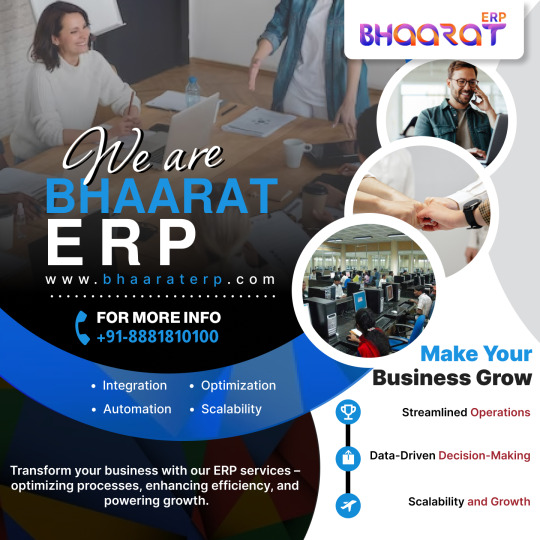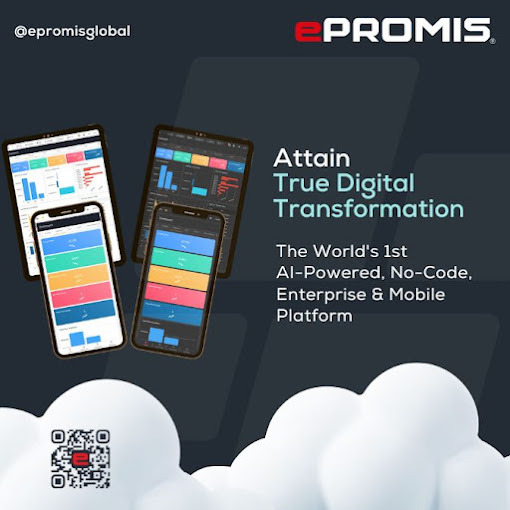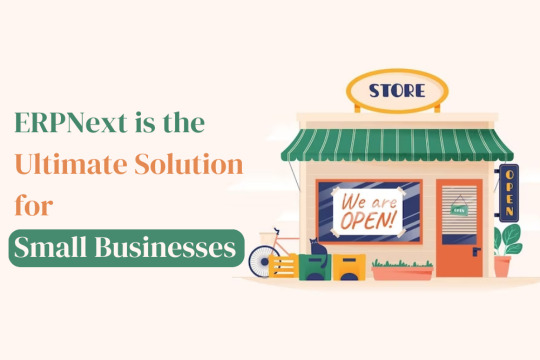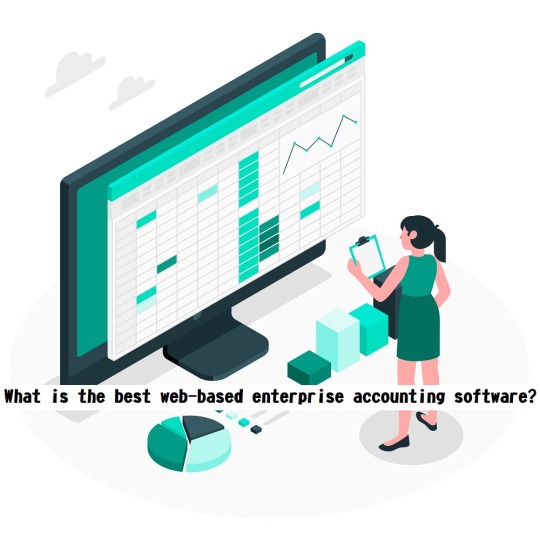#Cloud-based erp
Explore tagged Tumblr posts
Text
What is the Best Cloud-Based ERP Software in Saudi Arabia?
For small to medium businesses (SMBs) in Saudi Arabia, finding the right cloud-based ERP system is essential for streamlining operations, boosting efficiency, and managing costs. A standout choice is ALZERP, developed by Al Wajeez Tech, a leading software company based in Jeddah. ALZERP is a modern, affordable, and easy-to-use ERP system designed to meet the needs of SMBs, especially those in…
#ai#business#cloud-based ERP#digital-transformation#erp#saudi arabia#SME#software for small to medium businesses#technology
0 notes
Text
NetSuite Partner Jacksonville
NetSuite Partner Jacksonville
Looking for the best ERP solutions in Jacksonville? As a certified NetSuite Partner, we offer comprehensive cloud-based ERP solutions to help businesses streamline operations and achieve growth. Learn how NetSuite can transform your business today.

0 notes
Text
0 notes
Text
Efficiency at its Best: Exploring Inventory Stock Management Systems in Cloud-Based ERP

In today's fast-paced business environment, efficient inventory management is crucial for the success of any organization. With the advent of cloud-based ERP solutions, businesses now have access to powerful tools that can streamline their inventory stock management processes.
The Rise of Cloud-Based ERP Solutions
Before we dive into the specifics of inventory stock management, let's first understand what cloud-based ERP solutions are and why they have gained immense popularity in recent years. ERP, or Enterprise Resource Planning, refers to a suite of integrated software applications that help businesses manage their core processes, including finance, human resources, and inventory management. Traditionally, ERP systems were hosted on-premises, requiring significant investments in hardware and maintenance. However, with the advent of cloud computing, ERP systems have transitioned to the cloud, offering numerous advantages to businesses.
Cloud-based ERP solutions provide businesses with the flexibility and scalability they need to adapt to changing market conditions. By leveraging the power of the cloud, businesses can access their ERP systems from anywhere, at any time, using any device with an internet connection. This eliminates the need for expensive on-premises infrastructure and allows businesses to focus on their core competencies. Additionally, cloud-based ERP systems offer seamless integration with other cloud-based applications, enabling businesses to create a unified ecosystem that enhances productivity and efficiency.
Streamlining Inventory Stock Management
Now that we have a basic understanding of cloud-based ERP solutions, let's explore how they can revolutionize inventory stock management. Effective inventory management is essential for businesses to meet customer demand while minimizing costs and maximizing profitability. Traditional inventory management systems often suffer from inefficiencies, such as manual data entry, lack of real-time visibility, and difficulty in tracking inventory across multiple locations. This is where cloud-based ERP systems come to the rescue.
Cloud-based ERP systems offer robust inventory management modules that automate and streamline the entire inventory stock management process. These modules provide businesses with real-time visibility into their inventory levels, enabling them to make informed decisions regarding procurement, production, and order fulfillment. By leveraging advanced analytics and forecasting algorithms, cloud-based ERP systems can optimize inventory levels, reducing the risk of stockouts or excess inventory.
One of the key advantages of cloud-based ERP systems is their ability to integrate with other business functions. For example, by integrating inventory management with sales and customer relationship management (CRM), businesses can gain insights into customer demand patterns and align their inventory levels accordingly. This ensures that businesses have the right products in stock at the right time, reducing lead times and improving customer satisfaction.
Conclusion
In conclusion, cloud-based ERP solutions have revolutionized inventory stock management by providing businesses with powerful tools to streamline their processes. With real-time visibility, improved accuracy, optimized inventory levels, enhanced collaboration, and scalability, cloud-based ERP systems offer a comprehensive solution for businesses of all sizes. So, if you want to take your inventory stock management to the next level, it's time to explore the world of cloud-based ERP solutions. Embrace efficiency, embrace the cloud!
0 notes
Text

BhaaratERP Software is the ultimate solution to streamline your business operations. Our cloud-based ERP system provides a comprehensive suite of tools and features to help businesses automate their processes, increase efficiency, and reduce costs. With BhaaratERP, you can manage your inventory, sales, finances, and more from a single platform, giving you complete control over your business. Our software is easy to use, and our team of experts is always ready to support you if you need help. Transform your business today with BhaaratERP Software.
#billing software#bhaaraterp#inventory management#cloud-based erp#gst billing software#public cloud erp solution
0 notes
Text








#enterprise resource planning software#erp usa#erp software usa#best erp software#cloud erp#erp software in usa#cloud-based erp
0 notes
Text
ERPNext: The Ultimate Solution for Small Businesses
Introduction Enterprise resource planning (ERP) software is a suite of integrated applications that helps businesses manage their core processes, such as accounting, manufacturing, sales, and human resources. ERP systems have been around for decades, but they are evolving rapidly to meet the needs of modern businesses. One of the most promising new ERP solutions on the market is ERPNext. ERPNext…

View On WordPress
#Affordable ERP#Cloud-based ERP#Enhanced flexibility#Enterprise resource planning#ERP#erp frappe#ERPNext#erpnext benefits#erpnext customers#ERPNext demo#erpnext for small business#erpnext software#frappe erpnext#frappe open source#Free ERP software for small business#Future of ERP#Improve compliance#Improve efficiency#Increase productivity#Innovative ERP#Open-source ERP#Reduce costs#Scalability#Scalable ERP#Secure ERP#Small businesses#Trends
0 notes
Text
ERP modernization is becoming a popular option for companies of all sizes and industries that wish to be more productive, agile, and cost-efficient. Cloud based ERP solutions offer the best option for ERP modernization. They eliminate many of the implementation costs and timelines that make traditional ERP upgrades challenging.
#Cloud ERP#Cloud ERP systems#Cloud-based ERP#cloud-based ERP software#cloud-based ERP solution#cloud-based ERP solutions#Cloud-based ERP systems#ERP implementation#ERP integrations#ERP modernization#ERP software provider#ERP solutions company#erp solutions for small businesses#ERP systems#Microsoft Business Central
0 notes
Text
What is the best web-based enterprise accounting software?

In the fast-paced and ever-evolving landscape of business, staying on top of your finances is crucial. As enterprises expand their operations, managing accounts efficiently becomes a daunting task. Thankfully, with the advent of technology, businesses now have access to a plethora of web-based enterprise accounting software options to streamline their financial processes. In this comprehensive guide, we will explore the ins and outs of web-based enterprise accounting software, helping you make an informed decision on the best solution for your business needs.
Understanding Web-Based Enterprise Accounting Software
Web-based enterprise accounting software, often referred to as cloud accounting software, is a digital solution that allows businesses to manage their financial activities online. Unlike traditional accounting systems that rely on on-premise software, web-based accounting tools operate in the cloud, offering users the flexibility to access their financial data from anywhere with an internet connection.
Advantages of Web-Based Enterprise Accounting Software
1. Accessibility
One of the primary advantages of web-based accounting software is accessibility. With data stored securely in the cloud, users can access their financial information anytime, anywhere. This proves especially beneficial for enterprises with multiple locations or remote teams, fostering collaboration and efficiency.
2. Cost Efficiency
Web-based accounting solutions often follow a subscription-based model, eliminating the need for costly upfront investments in software and hardware. This cost-effective approach makes it easier for businesses to scale their accounting infrastructure according to their needs without breaking the bank.
3. Real-Time Updates
In the dynamic world of business, real-time data is invaluable. Web-based accounting software provides instant updates, ensuring that users have access to the most recent financial information. This feature is crucial for making informed decisions and adapting to market changes promptly.
4. Automatic Updates and Maintenance
Gone are the days of manual software updates and maintenance. With web-based accounting solutions, updates are automatic, and maintenance is handled by the service provider. This frees up valuable time for businesses to focus on core operations rather than managing software updates.
Features to Look for in Web-Based Enterprise Accounting Software
1. User-Friendly Interface
A user-friendly interface is essential for ensuring that your team can navigate the software seamlessly. Look for solutions with intuitive dashboards and easy-to-understand features to minimize the learning curve for your staff.
2. Scalability
As your enterprise grows, so do your accounting needs. Choose a web-based accounting solution that can scale with your business, accommodating increased transaction volumes and additional users without compromising performance.
3. Integration Capabilities
Efficient accounting doesn't happen in isolation. Ensure that the web-based accounting software you choose integrates seamlessly with other essential business tools, such as CRM systems, project management software, and e-commerce platforms.
4. Security
The security of your financial data should be a top priority. Opt for web-based accounting software that employs robust encryption protocols and follows industry best practices for data protection. Additionally, check for features such as multi-factor authentication to add an extra layer of security.
Top Contenders in the Web-Based Enterprise Accounting Software Market
1. MargBooks
MargBooks Online is a India's popular online accounting solution known for its user-friendly interface and robust features. It offers a range of plans to suit businesses of all sizes and provides tools for invoicing, expense tracking, and financial reporting.
2. Xero
Xero is another cloud accounting software that caters to small and medium-sized enterprises. With features like bank reconciliation, inventory management, and payroll integration, Xero is a comprehensive solution for businesses looking to streamline their financial processes.
3. NetSuite
NetSuite, owned by Oracle, is a cloud-based ERP (Enterprise Resource Planning) solution that includes robust accounting functionalities. It is suitable for larger enterprises with complex financial needs and offers features such as financial planning, revenue recognition, and multi-currency support.
4. Zoho Books
Zoho Books is part of the Zoho suite of business applications and is designed for small and medium-sized enterprises. It provides features such as automated workflows, project billing, and collaborative client portals, making it a versatile choice for businesses with diverse needs.
Making the Right Choice for Your Business
Choosing the best web-based enterprise accounting software for your business requires careful consideration of your specific needs and objectives. Here are some steps to guide you through the decision-making process:
1. Assess Your Business Requirements
Start by identifying your business's specific accounting requirements. Consider factors such as the number of users, the complexity of your financial transactions, and the need for integration with other business applications.
2. Set a Budget
Determine a realistic budget for your accounting software. While web-based solutions often offer cost savings compared to traditional software, it's essential to choose a solution that aligns with your financial resources.
3. Explore Free Trials
Many web-based accounting software providers offer free trials of their platforms. Take advantage of these trials to explore the features and functionalities of different solutions before making a commitment.
4. Seek Recommendations and Reviews
Consult with other businesses in your industry or network to gather recommendations and insights. Additionally, read reviews from reputable sources to gain a better understanding of the user experiences with different accounting software options.
The Evolution of Web-Based Enterprise Accounting Software
As technology continues to advance, so does the landscape of web-based enterprise accounting software. The evolution of these platforms is driven by the ever-changing needs of businesses and the ongoing developments in cloud technology. Let's delve deeper into the evolving trends shaping the future of web-based accounting solutions.
1. Artificial Intelligence (AI) and Automation
The integration of artificial intelligence and automation is revolutionizing how businesses handle their financial processes. Modern web-based accounting software is incorporating AI algorithms to automate repetitive tasks, such as data entry and invoice categorization. This not only increases efficiency but also minimizes the risk of human error.
2. Enhanced Data Analytics
In the age of big data, the ability to derive meaningful insights from financial data is paramount. Advanced web-based accounting solutions are now equipped with powerful data analytics tools. These tools help businesses analyze trends, forecast future financial scenarios, and make data-driven decisions.
3. Mobile Accessibility
The shift towards mobile accessibility is a notable trend in web-based enterprise accounting software. Businesses are increasingly relying on mobile devices for day-to-day operations, and accounting software providers are responding by offering mobile-friendly applications. This allows users to manage their finances on the go, providing unparalleled flexibility.
4. Integration with E-Commerce Platforms
As e-commerce continues to thrive, businesses are looking for accounting solutions that seamlessly integrate with their online sales platforms. Modern web-based accounting software often includes features tailored for e-commerce, such as automated transaction reconciliation with online sales channels and inventory management.
5. Blockchain Technology
Blockchain technology is making waves in various industries, and accounting is no exception. Some web-based accounting solutions are exploring the integration of blockchain for enhanced security and transparency in financial transactions. This could revolutionize how businesses handle aspects like auditing and transaction verification.
Common Challenges and How to Overcome Them
While web-based enterprise accounting software offers numerous benefits, it's important to be aware of potential challenges and how to overcome them. Here are some common issues businesses may face:
1. Security Concerns
The sensitive nature of financial data raises concerns about security in the cloud. To address this, choose a web-based accounting solution that employs robust encryption protocols and complies with industry security standards. Additionally, educate your team about best practices for secure online behavior.
2. Connectivity Issues
Reliable internet connectivity is crucial for accessing web-based accounting software. In regions with unstable internet connections, businesses may face challenges in real-time collaboration and data accessibility. Consider implementing backup solutions for offline access or explore accounting software with offline capabilities.
3. Customization Needs
Every business has unique accounting requirements. Some businesses may find that certain web-based accounting solutions lack the level of customization they need. In such cases, explore platforms that offer extensive customization options or consider integrating additional specialized accounting tools.
4. Data Ownership and Control
Understanding the terms of service and data ownership is essential when using web-based accounting software. Ensure that the chosen platform allows you to retain control over your financial data and provides mechanisms for data export in case of migration to a different system.
Conclusion: Making the Right Choice for Long-Term Success
In the fast-paced world of business, the right web-based enterprise accounting software can be a game-changer. Whether you're a small startup or a large enterprise, the key is to stay informed about the latest advancements in accounting technology and align your choice with the long-term goals of your business.
As you navigate the vast landscape of web-based accounting solutions, remember that the best choice is the one that seamlessly integrates with your business processes, enhances efficiency, and adapts to the evolving needs of your enterprise. If you have any specific questions or need further guidance on a particular aspect of web-based accounting software, feel free to ask for more information!
Also read- Online billing and accounting software to manage your business
#Web-based accounting#Cloud software#Financial management#Enterprise solutions#accounting#software#billing#online billing software#technology#programming#erp#tech#drawings#illlustration#artwork#art style#sketchy#art#aspec#aromantic asexual#arospec#acespec#aroace#aro#bg3#astarion#shadowheart#gale dekarios#gale of waterdeep#karlach
2 notes
·
View notes
Text
ZipERP – Best Cloud Based ERP Software in India
Highly configurable and cost-effective cloud-based ERP software, ZipERP, is designed to meet a business's specific requirements. An efficient Cloud ERP solution provides functionality for your various business processes, including financial accounting, sales and distribution, purchase, production, inventory management, system administration, compliance management, CRM, payroll, and quality control. Contact us today!
2 notes
·
View notes
Text
Unlock the Power of Product Traceability with B-POS ERP
In today's fast-paced business environment, the ability to trace and track products across the supply chain is essential for businesses to stay competitive. This innovative POS billing software provides real-time billing and accounting management, inventory management, multiple store management, automated GST filing, etc. This patented technology streamlines product traceability across the supply chain, providing businesses with comprehensive visibility into their daily operations for enhanced control and more informed decision-making.
One of the important functions of B-POS ERP is its potential to offer real-time billing and accounting management. This POS billing software streamlines the billing process, allowing businesses to generate invoices, sales orders, and service invoices efficiently. By automating these processes, B-POS ERP reduces manual work, minimizes errors, and ensures compliance with financial regulations. The digital ledger with financial reports gives businesses access to valuable insights, enabling them to make data-driven decisions that drive growth and profitability.
B-POS ERP's inventory management capabilities set it apart from other software solutions. By monitoring inventory using FIFO-primarily based total sales, minimum, and most re-order levels, companies can optimize their stock to keep away from stockouts or overstocking.
This feature ensures that products are always available when needed, which is crucial for maintaining customer satisfaction and loyalty. The system also offers real-time visibility into inventory levels, allowing businesses to make informed decisions about purchasing and distribution.
For businesses with multiple locations or branches, B-POS ERP's multi-store management feature is invaluable. This software ensures consistent operations across all locations, making it easy to scale and expand your business. Centralized data access and control allow businesses to efficiently manage multiple locations whilst keeping the consistency of their process and operations. This feature not only saves time and resources but also boosts overall business efficiency.
Compliance with tax regulations is critical for any business, and B-POS ERP simplifies this process with its automated GST filing feature. By automatically generating tax reports and filing GST returns, businesses can ensure they remain compliant with tax laws and avoid potential penalties. This feature saves time and resources that would otherwise be spent on manual tax filing, allowing businesses to focus on their core operations.
B-POS ERP offers a comprehensive digital ledger that captures, stores, organizes, and analyzes financial data. By providing detailed financial reports, businesses can gain valuable insights into their financial health, enabling better decision-making and strategic planning. This feature not only helps businesses stay compliant with financial regulations but also empowers them to make data-driven decisions that drive growth and profitability.
In conclusion, B-POS ERP is a powerful and comprehensive solution that enables businesses to achieve product traceability across the supply chain. By offering real-time billing and accounting management, inventory management, multiple store management, automated GST filing, and a digital ledger with financial reports, businesses can gain clear visibility into their day-to-day operations and better control their overall business performance.
Choose B-POS ERP to unlock the power of product traceability and streamline your business operations today.
#POS Billing Software#Cloud-Based Billing ERP#Fast Billing Software#Auto Part (Hardware) Billing Software#Smart Billing Software#Multi-Branch Billing Management Software#Retail Billing Software#Automation Billing Software#BSPL Software#Super-Mart Billing software#Supermarket Billing Software#IT Hardware Billing Software#Mobile Shop Billing Software#Footwear Billing Software#FMCD Billing Software#General Trade Billing Software#Kirana Shop Billing Software#Pharmacy Billing Software#Chemist Billing Software#Garments Billing Software#FMCG Billing Software#Pharma Billing Software#Customize Billing Software#Barcode billing Software
2 notes
·
View notes
Text
#retail pos solutions#erp for retail business#cloud retail erp software#retail pos software#retail pos system software#cloud it solutions#cloud based erp solutions#erp software solutions#business software solutions#software solutions company#Field Service Management Solution#erp for small business#cloud erp#erp implementation#erpcompany#erpdevelopment#canada#erpsolutions#sap erp#erp#erp software
2 notes
·
View notes
Text
What Is Cloud ERP Software And How Does It Work?

What is cloud ERP?
Cloud ERP, or enterprise resource planning, is a cloud-based software system for managing finances, inventory, and other critical activities. ERP software streamlines and automates critical business procedures, allowing you to run your operations more efficiently. To succeed in today’s highly competitive business world, organizations require cutting-edge technology that enables them to innovate and scale rapidly.
Businesses require a digital transformation that can only be achieved by being globally connected, advanced, and competitive by prioritizing software system and tool updates, rapid access to real-time data, and applying diverse growth strategies. This is where cloud-based ERP software and its advantages come into play. In particular, cloud ERP software may help you manage finances, such as invoicing, financial reporting, and budgeting. Cloud ERP software can also help you maintain track of inventory levels, ensuring you have enough to meet client demands.
How does cloud ERP work?
Cloud ERP solutions operate similarly to on-premise ERP systems, with the primary distinction being that they are hosted off-site, usually by the software vendor. You don’t have to invest in their hardware and infrastructure to run the software, which makes it more affordable.
The term “cloud” refers to a collection of internet-connected technologies such as storage, servers, networking, and software. Cloud-based ERP solutions typically need organizations to cover a recurring charge to access the software. This can make it more flexible for enterprises because they only pay for what they use and can increase or decrease their usage as needed. Businesses can also access their data from anywhere with an internet connection, which is advantageous for remote work.
A cloud-based ERP platform’s primary capabilities include access to customer information, financial data, human resource management tools, sales history, supply chain management, and many other features.
In this blog, we will see the Cloud ERP Features, Benefits, and How PMTRACK Cloud ERP Helps for the manufacturing companies in Pune to grow their business.
Cloud ERP vs. On-Premise ERP
Cloud ERP operates on an external cloud computing platform and is maintained by the vendor’s IT team. On the other hand, on-premise ERP is deployed on your servers and hardware and maintained by your in-house IT team.
Features of Cloud ERP
As a business owner, you must be concerned with numerous tasks. You must consider the product or service you provide, your customers, your employees, and your bottom line. When it comes to ERP, you should examine the initial cost, implementation time, and whether your employees can use it. Cloud ERP systems often have the following features:
Ease of use
The ERP system should be simple to use so that your staff can rapidly understand and implement it. The cloud ERP system should have an easy-to-use interface and offer users the training and assistance they need. Companies that supply cloud ERP systems frequently give free or low-cost training to help business owners and staff get the most out of their systems.
Flexibility
Cloud ERP systems are often more adaptable than on-premise ERP solutions. Some cloud ERP solutions include a “pay as you go” pricing model, which is beneficial for firms with changing or seasonal needs. Cloud ERP solutions can also be scaled up or down to match changing business requirements.
Accessibility
Cloud ERP allows you and your staff to use the system from anywhere with an Internet connection. This can improve the workflows of your remote or regularly traveling personnel. For project management, some cloud ERP solutions have mobile apps that allow users to access the system while on the go.
Customizations and integrations
Most cloud platforms enable some level of customization and integration. You can choose the features and modules that best suit your requirements. For example, you may only want the accounting and inventory management capabilities of an ERP system. Some cloud ERP providers include pre-built interfaces with popular business programs like QuickBooks, Salesforce, and Google Apps.
Security
Business owners frequently express concerns about security when it comes to cloud computing. However, cloud ERP providers often use strong security features such as data encryption and user authentication. Always check with a potential provider to discover what security precautions they have in place. Cloud-based ERP solutions can give your company more security and peace of mind.
What are the Benefits of Cloud-based ERP?
Cloud-based ERP systems provide several potential benefits that might entice enterprises of any size. These solutions can help you streamline your operations, improve accessibility, and find cost-saving options. Advantages include:
Ease of Implementation: Cloud ERP systems are quicker to adopt than on-premise ERP systems. The technological environment for cloud technologies can be set up in as little as 24 hours.
Scalability: One of the most appealing aspects of any cloud-based ERP is its capacity to scale effortlessly as a company’s requirements evolve. Upgrading and scaling an on-premise system requires a significant amount of time and effort.
Mobility and Access to Information: Mobile devices are now firmly established as crucial business tools. On-premise ERP software has been reluctant to adapt to the mobile world, but cloud-based software enables advanced access and control via ERP-enabled mobile devices.
End User Adoption: Cloud technology frequently includes current user interfaces that make it easier to adapt than on-premise software, thus employees may be more willing to accept software changes.
Regular Upgrades: Cloud-based ERP deploys software updates from the manufacturer’s or vendor’s cloud servers, relieving IT staff of the responsibility of regularly updating the system.
How PMTRACK Cloud ERP Solution Helps:
PMTRACK Cloud ERP software can offer several advantages to enterprises of all sizes and sectors. Cloud-based ERPs can help businesses streamline their operations and achieve higher efficiency and profitability by lowering upfront costs and facilitating speedier adoption, as well as improving scalability, accessibility, and security.
We understand the hurdles that organizations encounter while integrating new technology solutions. That’s why we provide complete cloud-based ERP implementation services that can assist organizations of all sizes in optimizing their operations and achieving their strategic objectives.
Our expert consultants and engineers can assist you with selecting the best cloud-based ERP software for your business, implementing the solution quickly and efficiently, and providing ongoing support and maintenance to ensure that your system remains up to current and functioning properly.
Businesses that work with PMTRACK ERP may use the power of Cloud ERP software to accelerate growth, enhance efficiency, and remain ahead of the competition. So, if you want to take your business to the next level, call us today to learn more about our cloud-based ERP services and how we can help you reach your objectives.
Bottom Line:
Cloud-based ERP systems are a sophisticated and proven solution used by thousands of companies all over the world to achieve digital transformation.
Businesses that select cloud ERP services can accelerate their growth efforts since they have immediate real-time access to data and tools that can drive change, allowing them to capitalize on opportunities in the fastest ways possible.
Now is the moment to start using a cloud ERP solution. Our objective is to empower businesses by utilizing cloud-based ERP technologies. Contact us today to discuss your business needs and begin the journey to digital transformation.
Contact us to set up a demo or learn more about how PMTRACK ERP Software can help you streamline your business operations.
To summarise, cloud-based manufacturing ERP solutions in Pune provide compelling benefits for small firms, such as cost savings, simplicity of setup, scalability, and end-user engagement.
However, it is critical to consider potential negatives such as data security problems, customization restrictions, and cost. By researching both the benefits and potential pitfalls of cloud-based ERP, you’ll be able to make an informed decision for your company.
0 notes
Text
Integrating Cloud-based ERP with CRM for Enhanced Customer Service
Integrating cloud-based ERP with CRM systems offers businesses a range of benefits, from streamlined processes and improved customer service to increased efficiency and productivity. By leveraging the power of integration, businesses can gain a competitive advantage and deliver exceptional customer experiences. However, it is essential to consider compatibility, customization, data migration, training, and security to ensure a successful integration. With the right approach and careful planning, businesses can enhance their customer service capabilities and drive growth in today's digital age.
0 notes
Text
#billing software#bhaaraterp#inventory management#cloud-based erp#public cloud erp solution#Gst billing software
0 notes
Text
ePROMIS emerges as a luminary in the enterprise software arena, bringing forth a suite of AI-powered, cloud-based solutions to revolutionize business management. Our FutureGen Enterprise SaaS, integrating ERP, CRM, and HCM systems, is a masterpiece of technological prowess, designed to dovetail with diverse business models. Whether catering to global corporations or dynamic startups, ePROMIS delivers real-time, strategic insights for agile decision-making. Our platform excels in a global setting, ensuring compliance and flexibility in multi-currency, multi-entity operations. Championing data security and user-friendliness, ePROMIS is the quintessence of modern enterprise solutions. Propel your business into the future with ePROMIS – where innovation and practicality converge for excellence.
#enterprise resource planning software#erp usa#erp software usa#best erp software#cloud erp#erp software in usa#cloud-based erp
1 note
·
View note